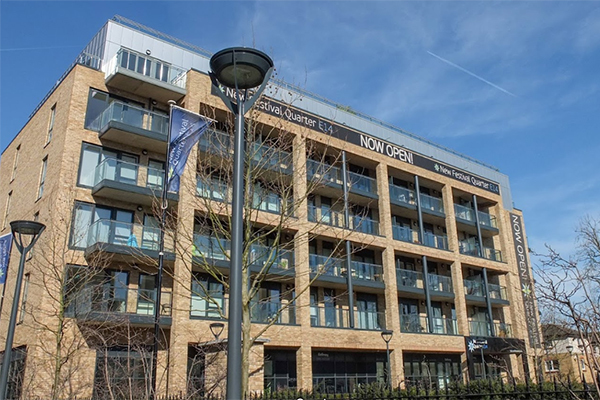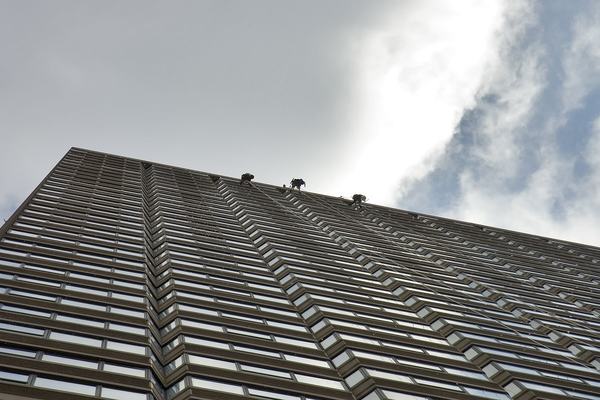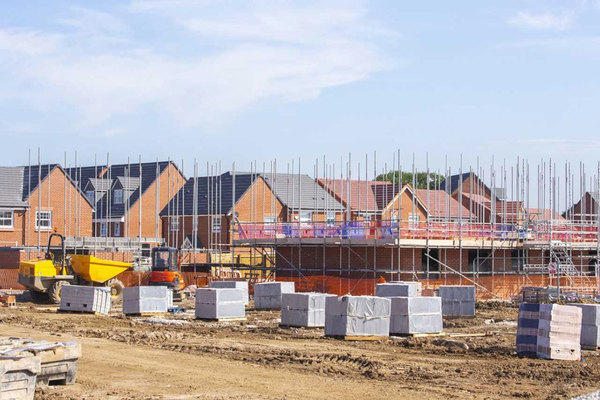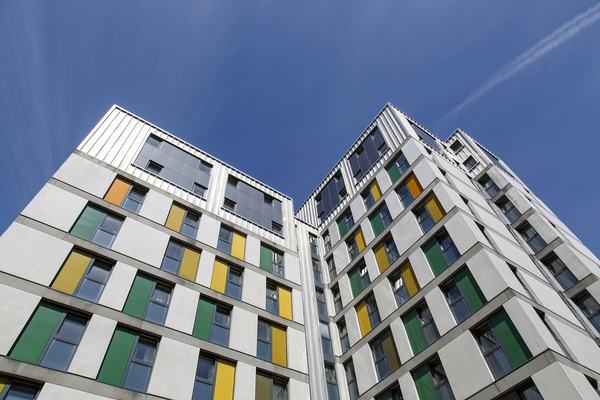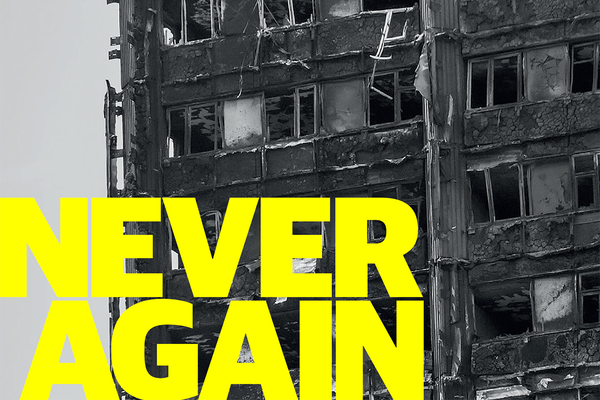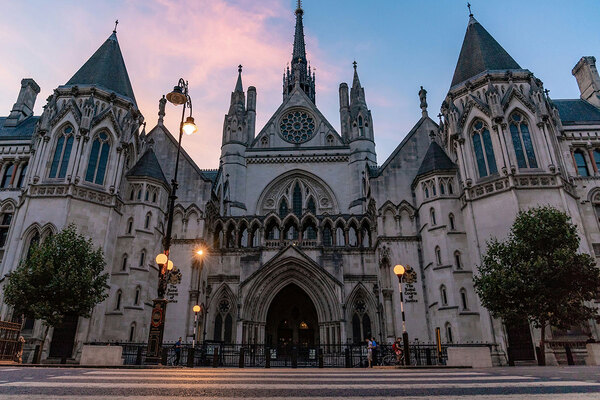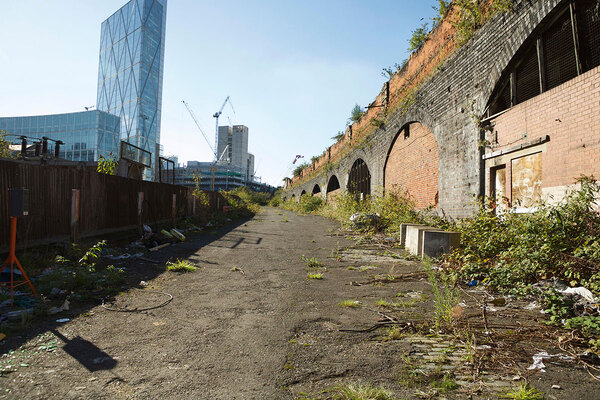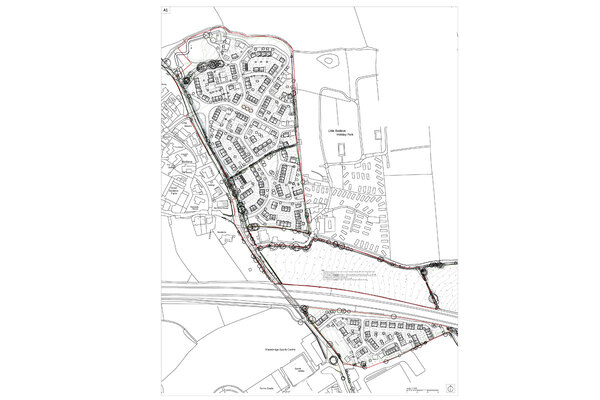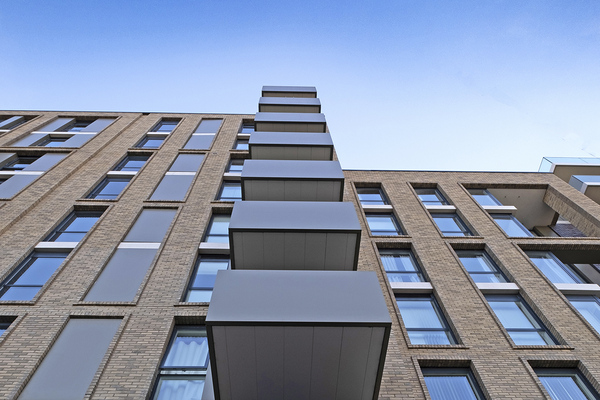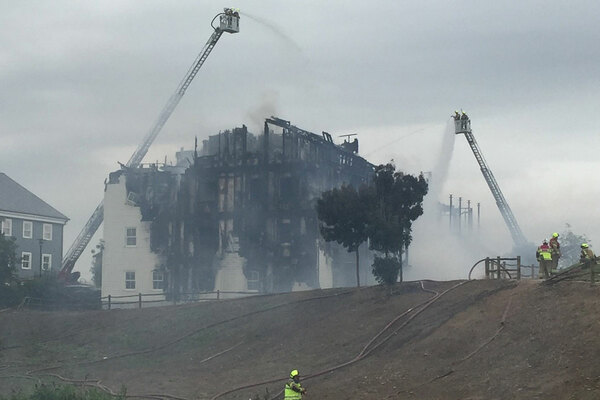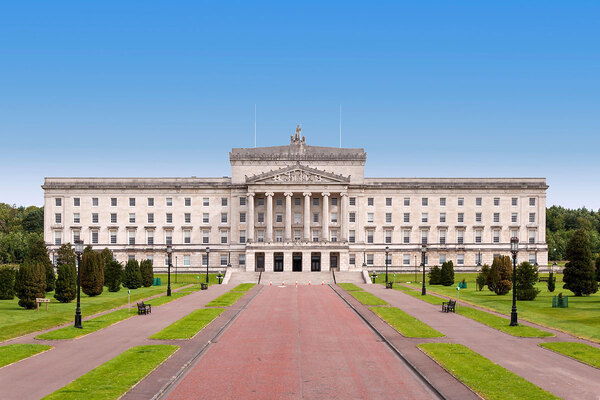You are viewing 1 of your 1 free articles
NHBC to cover costs on more developments with Grenfell-style cladding
The National House Building Council (NHBC) will contribute towards the re-cladding costs on a number of developments found to have dangerous Grenfell-style cladding, the group’s chief executive has confirmed.
Steve Wood, chief executive at the NHBC, told Inside Housing it had now accepted insurance claims on a “defined number” of developments and were in discussions with developers over the level of support for remediation work.
Mr Wood said: “There are other locations where we’ve confirmed valid warranty claims and we are in discussions with developers and policy holders on that, and yes [there] will be other sites where we will make contributions to the remediation.
“It’s a defined population but not a huge number, and we have not had too much in terms of new cases coming through.”
NHBC told Inside Housing that it had “fewer than a dozen” cladding claims that had been accepted or which are still under consideration.
When asked whether it could breakdown the figure into claims accepted and those ongoing, and whether it could disclose the location of the blocks, NHBC said it could not due to confidentiality of residents.
NHBC is the country’s largest provider of building insurance in the UK, providing warranties for 80% of all the country’s new build homes.
The organisation’s Buildmark warranty policy usually lasts for 10 years and covers homeowners from physical damage to the home caused by a failure to build to NHBC’s technical requirements.
In July NHBC had accepted an insurance claim to pay for the removal of the dangerous aluminium composite material (ACM) cladding at the 1,000-home New Capital Quay block in Greenwich, south-east London. The decision followed a long-running disagreement over the costs of re-cladding between the NHBC and developer Galliard Homes.
The NHBC hasn’t previously disclosed the number of other claims it has received or accepted.
NHBC did confirm to Inside Housing that it would be contributing towards the costs of remediation at the New Festival Quarter development in Poplar, east London.
Mr Wood said: “We are satisfied there is a valid insurance claim, we are still waiting on the final report from the expert on that site, and that is needed so we know exactly what the issues are but NHBC will be contributing to remediation costs because it is a valid warranty claim.”
Listen to our podcast episode: ’The leaseholders stuck in buildings with Grenfell-style cladding’
Last year residents at the 500-home development in east London faced re-cladding bills of more than £10,000 each household after ACM cladding was found on the exterior of its buildings.
Last month developer Bellway revealed it would set aside £5.9m to cover cladding removal costs from its developments. This included a contribution towards the re-cladding of New Festival Quarter as well as work on its Prospect Place block in Cardiff.
NHBC is carrying out a review of the New Festival Quarter which is set to be concluded in the coming weeks, and this will determine the extent of contribution from the NHBC.
Mr Wood said the NHBC had already set aside a provision for any current or future contributions towards remediation work for buildings which need cladding removed.
The NHBC’s accounts for the year to March, reported that the organisation’s unexpired risk reserve, the additional fund for expected claims, had hit £39.9m, up from £7.3m for the previous 12 months.
The report said that this included potential exposure to future claims in relation to cladding materials and a provision relating to the New Capital Quay development.
There are currently 201 private residential blocks over 18m found to contain ACM cladding in the UK.
Only two of these private blocks have so far seen cladding completely removed, while plans for remediation is still unclear on 86 of these blocks.
In a response to the Mr Wood’s comments, housing minister Kit Malthouse said: “Nothing is more important than making sure people are safe in their homes and leaseholders should not be left to foot the bill for removing and replacing unsafe cladding.
“I am pleased the NHBC has reached a resolution on more buildings and will be contributing towards remediation costs.
“I urge warranty providers to assess the remaining claims as quickly as possible and end uncertainty for affected leaseholders.”
Never Again campaign
Inside Housing has launched a campaign to improve fire safety following the Grenfell Tower fire
Never Again: campaign asks
Inside Housing is calling for immediate action to implement the learning from the Lakanal House fire, and a commitment to act – without delay – on learning from the Grenfell Tower tragedy as it becomes available.
LANDLORDS
- Take immediate action to check cladding and external panels on tower blocks and take prompt, appropriate action to remedy any problems
- Update risk assessments using an appropriate, qualified expert.
- Commit to renewing assessments annually and after major repair or cladding work is carried out
- Review and update evacuation policies and ‘stay put’ advice in light of risk assessments, and communicate clearly to residents
GOVERNMENT
- Provide urgent advice on the installation and upkeep of external insulation
- Update and clarify building regulations immediately – with a commitment to update if additional learning emerges at a later date from the Grenfell inquiry
- Fund the retrofitting of sprinkler systems in all tower blocks across the UK (except where there are specific structural reasons not to do so)
We will submit evidence from our research to the Grenfell public inquiry.
The inquiry should look at why opportunities to implement learning that could have prevented the fire were missed, in order to ensure similar opportunities are acted on in the future.
The Paper Trail: The Failure of Building Regulations
Read our in-depth investigation into how building regulations have changed over time and how this may have contributed to the Grenfell Tower fire:
